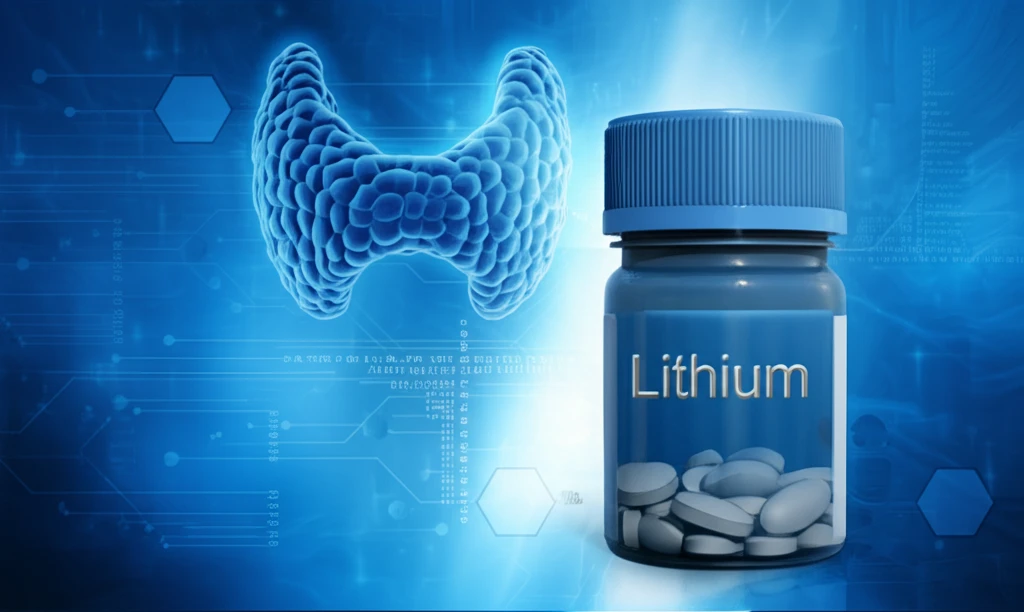
Lithium and Your Thyroid: What You Need to Know About Bipolar Treatment
"Exploring the Link Between Lithium Therapy, Thyroid Function, and Mental Wellness in Bipolar Disorder."
Bipolar affective disorder (BPAD), characterized by significant mood swings, affects millions worldwide. Effective management often involves long-term treatment with mood stabilizers, and lithium has long been a cornerstone of such therapy. While lithium can be incredibly effective, it's essential to be aware of its potential side effects, particularly those related to thyroid function.
The thyroid gland, responsible for producing hormones that regulate metabolism, can be sensitive to lithium's effects. This connection is particularly important for women, who are already at a higher risk for thyroid issues. Understanding the interplay between lithium, thyroid function, and bipolar disorder is key to optimizing treatment and minimizing potential complications.
This article will explore the findings of a hospital-based prospective study that investigated the correlation between serum lithium levels and thyroid function tests in individuals with bipolar disorder. We'll break down the key insights and offer guidance on how to navigate this aspect of your treatment plan, ensuring you stay informed and proactive in managing your health.
Decoding the Lithium-Thyroid Connection: Key Findings

A study conducted at Father Muller Medical College evaluated 150 patients with BPAD undergoing lithium treatment for at least six months. The research aimed to identify correlations between lithium levels in the blood and thyroid function abnormalities. Serum lithium levels were measured using ion-selective electrode method, while thyroid function tests (TFT) were performed using electrochemiluminescence. The data was then analyzed using Karl Pearson Correlation Coefficient to determine any significant relationships.
- Hyperthyroidism (low TSH): 4% of patients (3 males, 3 females) had TSH levels below 0.27 mEq/l, with an average lithium level of 1.35 mEq/l.
- Hypothyroidism (high TSH): 6% of patients (5 males, 4 females) had TSH levels above 4.2 mEq/l, with an average lithium level of 0.44 mEq/l.
- Normal Thyroid Function: The majority (90%) of patients had normal thyroid function, with an average lithium level of 0.66 mEq/l.
Practical Steps: Monitoring and Maintaining Thyroid Health During Lithium Therapy
If you're taking lithium for bipolar disorder, here's how to stay proactive about your thyroid health:Regular Monitoring: Work closely with your doctor to schedule regular thyroid function tests. These tests will help detect any changes early on. Dosage Adjustment: Be open with your doctor about any symptoms you're experiencing. They may need to adjust your lithium dosage to minimize thyroid impact. Lifestyle Considerations: Support your overall health with a balanced diet, regular exercise, and stress management techniques. These habits can positively influence both your mental and physical well-being. Open Communication: Maintain an open dialogue with your healthcare team. Share any concerns or changes in your health promptly. By taking these steps, you can manage your bipolar disorder effectively while protecting your thyroid health and overall quality of life.
